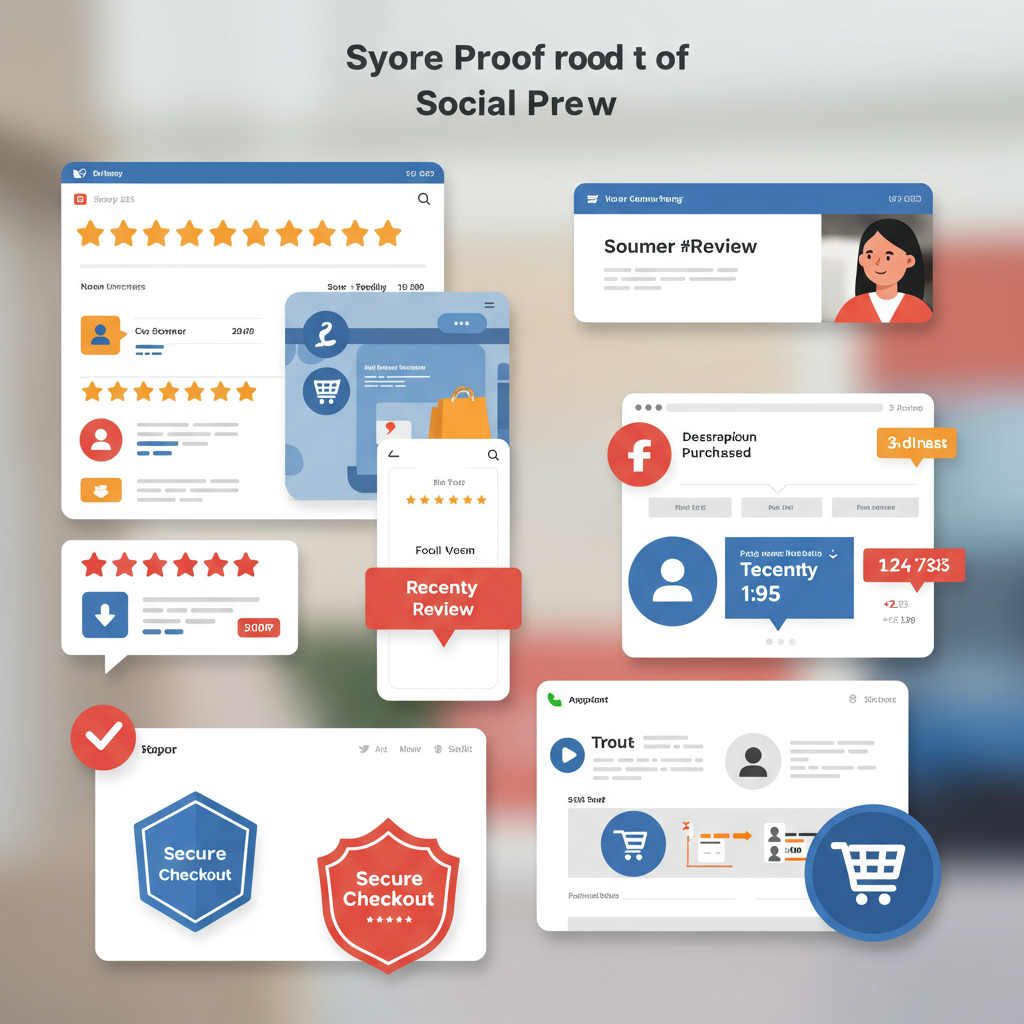Discover how leveraging the power of customer trust can dramatically increase your Shopify store’s conversions and revenue.
Hello fellow Shopify merchants! Today, I want to talk about one of the most powerful psychological tools you have at your disposal to boost sales: social proof. It’s not just a buzzword; it’s a fundamental human tendency to trust what others are doing or saying.
Think about it: when you’re looking to buy something new, aren’t you more likely to choose a product with glowing reviews over one with none? That’s social proof in action. It’s the idea that people will conform to the actions of others under the assumption that those actions are correct.
For us, as Shopify store owners, leveraging social proof is absolutely critical. In the vast, anonymous world of e-commerce, building trust is paramount. Customers can’t physically touch our products or speak to us face-to-face, so they rely heavily on the experiences of others.
My goal today is to walk you through the various forms of social proof and, more importantly, how you can effectively implement them on your Shopify store to convert more browsers into buyers. Let’s dive in!
The most common and arguably most effective form of social proof is **customer reviews and testimonials**. These are direct endorsements from people who have already purchased and used your products. They provide authentic, unbiased opinions that new customers value immensely.
On Shopify, integrating reviews is straightforward. Apps like Loox Product Reviews & Photos, Judge.me Product Reviews, or Yotpo Product Reviews & UGC are incredibly popular and offer robust features for collecting, managing, and displaying reviews.
When collecting reviews, make it easy for your customers. Send automated follow-up emails after a purchase, asking for their feedback. Offer incentives, like a small discount on their next order, to encourage participation.
Displaying reviews isn’t just about having a star rating. Showcase full testimonials, especially those that highlight specific benefits or solve common customer problems. Photos and videos from customers add an extra layer of authenticity.
Next up is **User-Generated Content (UGC)**. This goes beyond simple reviews. It includes photos, videos, and social media posts created by your customers featuring your products. UGC is incredibly powerful because it feels organic and trustworthy.
Encourage customers to share their experiences on social media using a unique hashtag. Run contests where customers submit photos or videos of themselves using your products. Feature the best UGC on your product pages, social media, and even in your email marketing.
Shopify apps can help you pull in Instagram feeds or create dedicated galleries for UGC. This not only provides social proof but also inspires potential customers by showing real people enjoying your products.
**Social Media Mentions and Follower Counts** also play a significant role. A strong social media presence with engaged followers signals popularity and trustworthiness. Integrate your social media feeds directly onto your Shopify store.
Displaying your follower count, especially if it’s substantial, can act as a subtle form of social proof. When people see thousands of others following your brand, they’re more likely to perceive you as established and reputable.
**Influencer Marketing** is another powerful avenue. When a respected figure in your niche endorses your product, their audience is much more likely to trust your brand. This can range from micro-influencers to major celebrities.
Showcase these endorsements prominently. If an influencer reviewed your product, link to their review or feature a quote on your product page. Their credibility transfers directly to your brand.
**Trust Badges and Security Seals** might not seem like “social” proof, but they are. They leverage the trust customers have in established security providers (like SSL certificates) or payment gateways (like PayPal, Visa, Mastercard).
Displaying these badges prominently, especially during the checkout process, reassures customers that their personal and financial information is safe. Shopify themes often have built-in sections for these, or you can use apps.
Another compelling form of social proof is **”X people are viewing this” or “X recently bought this” notifications**. These create a sense of urgency and FOMO (Fear Of Missing Out).
Apps like Sales Pop Up by Beeketing or Proofo can display real-time notifications of recent purchases or current visitor counts. This subtle nudge can be incredibly effective in pushing hesitant customers towards a purchase.
**Expert Endorsements and Certifications** are invaluable if your products are in a specialized niche. If your product is recommended by a doctor, a nutritionist, or certified by an industry body, highlight these credentials.
Similarly, **Media Mentions and Press** can significantly boost your credibility. If your brand or products have been featured in reputable publications, newspapers, or blogs, create a “Press” or “As Seen In” section on your site.
Finally, **Popularity Indicators** like “Best Sellers,” “Trending Products,” or “Most Popular” categories guide new customers towards products that are already proven favorites. This leverages the wisdom of the crowd.
Implementing these strategies isn’t a one-time task. It’s an ongoing process. Continuously collect new reviews, encourage UGC, and monitor your social media presence. The more fresh and relevant social proof you have, the better.
Remember, authenticity is key. Don’t fabricate reviews or endorsements. Customers are savvy, and inauthentic social proof can severely damage your brand’s reputation. Focus on genuine customer experiences.
So, what do you think about these strategies? Are you already using some of them, or have you discovered new ways to leverage social proof on your Shopify store? I’d love to hear your thoughts!
By strategically integrating these various forms of social proof into your Shopify store, you’re not just adding features; you’re building a powerful foundation of trust and credibility.
This trust translates directly into higher conversion rates, increased average order value, and ultimately, more sales for your business. Start small, experiment, and watch your Shopify store thrive!






